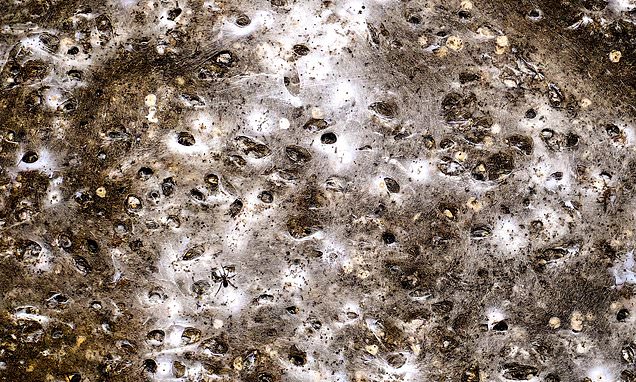Home / Science / Massive Spider Colony Discovered in Albanian-Greek Cave
Massive Spider Colony Discovered in Albanian-Greek Cave
14 Nov
Summary
- World's largest known spider web, housing 110,000 spiders, found in Sulfur Cave
- Two spider species, Tegenaria domestica and Prinerigone vagans, coexisting peacefully
- Abundant food source of midge flies may be key to their harmonious living

In a remarkable discovery, researchers have uncovered what is thought to be the world's largest-known spider colony, nestled in a pitch-black, sulfur-rich cave on the Albanian-Greek border. The sprawling web, spanning an impressive 1,140 square feet, is home to an estimated 110,000 spiders of two different species: around 69,000 Tegenaria domestica, or common house spiders, and 42,000 Prinerigone vagans.
The most surprising aspect of this find is the peaceful coexistence of the two spider species, which is highly unusual as the larger house spider typically preys on its smaller neighbor. Scientists believe the abundance of food in the form of an "unusually dense swarm" of 2.4 million midge flies may be the key factor enabling this harmonious living arrangement. Additionally, the darkness of the cave may impair the spiders' vision, leading them to rely more on vibratory cues to detect prey, reducing aggression.
Researchers are eager to further study this remarkable colony, as the cohabitation of these two spider species has never been observed before. The discovery offers valuable insights into the evolutionary adaptations and social dynamics of these arachnids, shedding light on the forces that shape the natural world.




